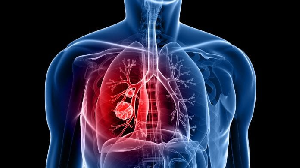
Researchers have determined that after lungs recover from infection, alveolar macrophages (immune cells that live in the lungs and help protect the lungs against infection) are different in multiple ways and those differences persist indefinitely.
How the lungs protect themselves when they are at their healthiest, like in young adult humans, is complex and only beginning to be understood. Researchers from Boston University School of Medicine (BUSM) propose that the new alveolar macrophage biology resulting from prior experiences with infections is one of the elements helping to protect the lungs of young adults against pneumonia.
"We have determined that these immune cells have a memory of their prior experiences and that memory influences how they will respond to any subsequent challenges like later infections," explained corresponding author Joseph Mizgerd, ScD, professor of medicine, microbiology and biochemistry at BUSM.
Worldwide, pneumonia remains a serious public health burden. Each year more than one million children under the age of five die from pneumonia and associated complications. In the U.S., pneumonia is the most common reason for the hospitalization of children and accounts for nearly half of the infectious disease-related hospitalizations and deaths of older adults.
In this study, experimental models were infected with a bacteria called pneumococcus, which is a normal experience for humans during childhood, and then allowed to recover. Another set of models were never infected. The researchers then compared the alveolar macrophages in the lungs of these two different groups, including the receptors on the cell surfaces, the genes being expressed by these cells and the metabolites inside of these cells. The alveolar macrophages in the models which had recovered from pneumonia had a new baseline in all these read-outs. In addition, their alveolar macrophages responded differently to subsequent infections, compared to the alveolar macrophages in lungs without a history of infections.
According to the researchers, young children are extremely susceptible to pneumonia, but multiple types of lung defense develop during childhood and protect against pneumonia, persisting through young adulthood. "The combination of aging, poor living habits and disease degrade these lung defenses so that pneumonia susceptibility increases again in later years," added Mizgerd.
By working to elucidate the naturally acquired defenses against pneumonia in young healthy adults the researchers hope to find better ways of identifying those most at risk for developing pneumonia and to devise new strategies for preventing or curing pneumonia.
Story Source:
Materials provided by Boston University School of Medicine. Note: Content may be edited for style and length.














